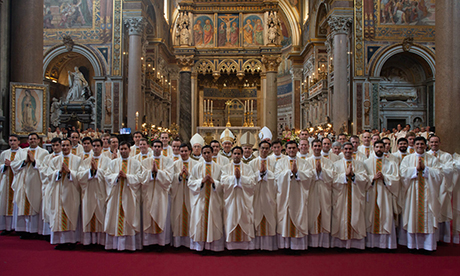Trusts registered in New Zealand held nearly $300 million in assets for a Roman Catholic order caught in an international paedophilia scandal, according to leaked records contained in the Pandora Papers.
The Mexico based Legionaries of Christ used the trusts in a complex financial arrangement that held assets in four continents, according to an analysis by the International Consortium of Investigative Journalists (ICIJ).
At the same time, the order is facing lawsuits by victims of alleged sexual abuse by priests.
The collaboration, codenamed the Pandora Papers, has revealed the hidden offshore financial dealings of an array of wealthy and powerful figures, including 35 country leaders, hundreds of politicians, 133 billionaires, celebrities, and sports stars.
The ICIJ identified three New Zealand-registered trusts connected to the Legionaries of Christ in documents from Asiaciti Trust. Asiaciti is a Singapore-based corporate services provider that was one of 14 professional firms whose confidential internal records were exposed in the Pandora Papers.
The first trust, known as The Retirement and Medical Charitable Trust (RMCT), was established in New Zealand July 6, 2010. This was just three days before Pope Benedict XVI asked Italian Cardinal Velasio de Paolis to oversee a reorganisation of the Legionaries of Christ and its lay, branch Regnum Christi.
The use of foreign trusts is not illegal or necessarily tied to tax avoidance or money laundering, and the Legionaries of Christ deny any wrongdoing.
However, when the Legionaries of Christ trusts were established, New Zealand was a popular destination for people seeking to hide money offshore using trusts.
New Zealand foreign trusts were promoted to international clients to hold assets confidentially without paying tax in a jurisdiction that did not carry the stigma of a tax haven.
The disclosure rules were tightened in 2017 following the 2016 release of the Panama Papers, another global financial investigation. This investigation raised questions about whether New Zealand had been too loose in policing overseas money flowing through its legal structures.
A spokesperson for the Legionaries of Christ denies the religious order controlled the trusts that made the investments. They only admit to having control over the RMCT, which received all the profits. They assert that it is incorrect to describe them as responsible for the movement of funds.
However, under an elaborate structure, they hid companies under other companies to hide that the beneficiary of all of those businesses was their own religious order.
The network of trusts and subsidiaries set up by priests and businessmen close to the congregation moved as much as $295 million across four continents.
Two companies based in the United Kingdom were in charge of commercial operations. Their cash flow came from interest-free loans made by AlfaOmega Trust and Salus Trust.
These two trusts were opened in New Zealand by the longtime financial planner of the Legion, Luis Garza Medina, and two of his brothers. The end beneficiary of the scheme, and which received the profits, was a third trust created by the religious order.
A review of leaked documents by ICIJ shows deep connections to the Legion in all three trusts, which share the same New Zealand address and have the same trustees managing them.
The Legionaries of Christ was founded in 1941 by a charismatic Mexican priest named Marcial Maciel. Over the next several decades, the order expanded internationally and established influential connections in the Vatican and elsewhere.
In 1997, reports emerged in the American press of allegations that Maciel had abused boys and young men training to be priests.
In 2006, the Vatican investigated nearly 100 abuse allegations against Maciel. As a result, it removed Maciel from ministry, ordering him to adopt a “life of prayer and penitence”.
Maciel died in 2008, and in 2010 the legion’s website acknowledged as factual the “reprehensible actions” by Maciel, including sexual abuse of minor seminarians.
